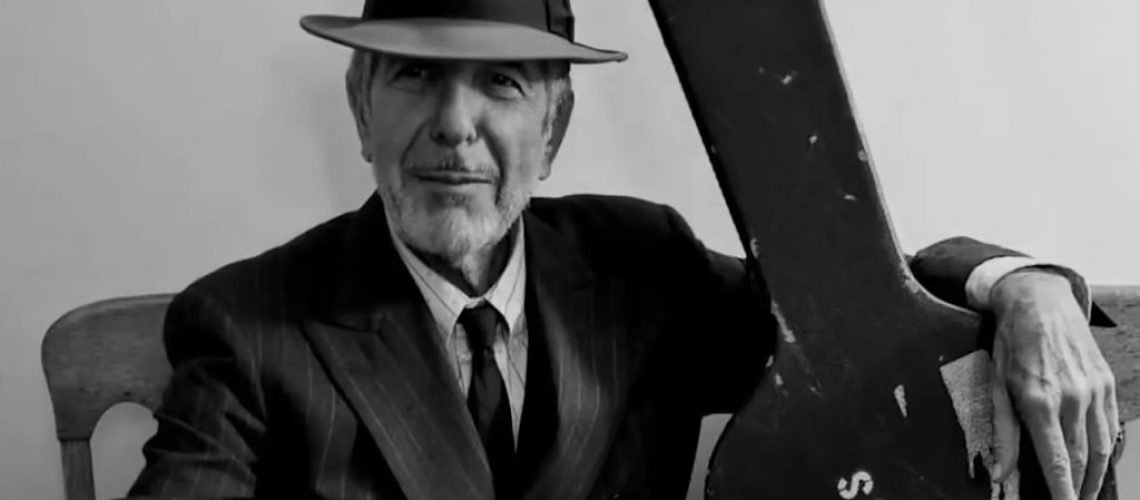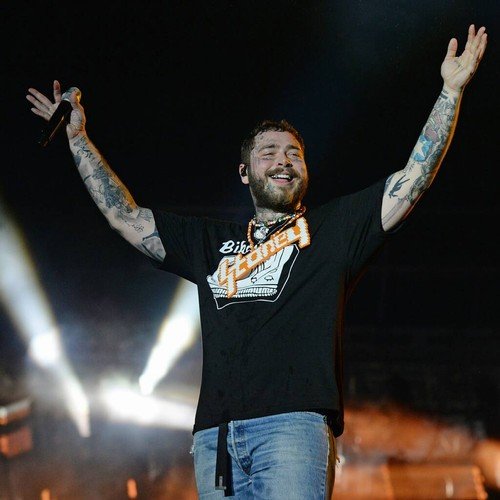After enjoying glory on the film festival circuit, the documentary Hallelujah: Leonard Cohen, A Journey, A Song is ready for its wider rollout.
Hallelujah — directed and produced by Daniel Geller and Dayna Goldfine and sourced from Alan Light’s 2012 book The Holy or the Broken: Leonard Cohen, Jeff Buckley, and the Unlikely Ascent of “Hallelujah” — opens July 1 at theaters in New York and Los Angeles, preceded the day before by a screening and discussion at the Rock and Roll Hall of Fame and Museum in Cleveland (Cohen was inducted in 2008). It then begins expanding on July 8 nationally, with weekly openings currently slated into August and more likely on the way via Sony Pictures Classics. The film, which premiered at the Venice and Telluride film festivals last September, is also due out in Cohen’s native Canada and is slated for Europe this fall.
“We’re delighted it’s going to get into movie theaters,” Geller told Billboard after Hallelujah‘s screening at the 2022 Tribeca Festival, followed by an all-star concert at the Beacon Theatre that featured performances by Judy Collins, Sharon Robinson, Amanda Shires and Why Don’t We’s Daniel Seavey. “It’s an emotional experience as a movie, and the amplification of seeing something together with other people in a darkened theater, with some permission if you want to weep a little bit, it’s what we always hope for in our movies. That’s the great reward.”
Goldfine added that the film’s sound “was mixed for the big screen.” The Cohen estate and longtime manager Robert Kory, who’s one of the films executive producers, had given them access to music stems from Cohen’s final concerts during the end of 2013 in Australia and New Zealand, which sound editor Bob Edwards mixed from scratch at Skywalker Sound. “It opens with his very final version of ‘Hallelujah’ that he performed in Auckland (on Dec. 21). (Edwards) could actually make it sound as it should in a theater. It’s a more gratifying watch. I think the most gratifying thing as a filmmaker has been to realize that it does indeed take the audience on a spiritual journey. It’s not your typical music documentary.”
Geller and Goldfine — along with Light, who served as a consulting producer and has published a newly updated and expanded edition of The Holy or the Broken — are gratified that Hallelujah is out at all. The documentary was an eight-year odyssey for the couple, starting with a dinner party suggestion during the summer of 2014 by a friend, screenwriter David Thomson. “When someone says, ‘Oh, I’ve got this great idea for your next film,’ I want to hear that idea,” says Goldfine, though her initial reaction “was to kind of have the air sucked out of me — That’s the idea? A documentary about a song?” That Thomson added he had considered writing a book about a song and “decided it wouldn’t really work” wasn’t encouraging, either.
But the hesitation soon turned into inspiration. “Within about 10 minutes, I was still sitting at the same dinner table. I kind of grabbed Dan’s arm and said, ‘It’s weird, but I thought of the song and I thought of the artist…it’s ‘Hallelujah’ and it’s Leonard Cohen.’ Clearly my subconscious thought more of the idea than my conscious brain did,” Goldfine says.
Like many others, Geller and Goldfine had first been exposed to “Hallelujah,” which first appeared on Cohen’s Various Positions album in 1984, via Jeff Buckley’s version on Live at Sin-é in 1993. They then became backwards educated about the song’s history, mostly through Light’s book. “We looked at each other and said, ‘OK, if someone like Alan Light could fill 250 pages of a book with this song, we can do a documentary.’” The project had relatively quick buy-in from Cohen and his manager Kory, especially since Geller and Goldfine proposed doing it without having to interview Cohen. They did not begin conducting interviews until the spring of 2016, however, spending most of the time negotiating to license “Hallelujah” from Sony Music Publishing. “We did not want to film in the interim because we did not want to waste anybody’s time,” Geller says. “If we could not get licensing rights to the song, why ask anybody to sit for an interview and begin to hand archives over?”
Once the rights were secured, however, Geller and Goldfine were off to the races, spending time with the likes of “Hallelujah” producer John Lissauer, Cohen confidant Larry “Ratso” Sloman, photographer and video director Dominique Issermann, longtime Cohen friends such as Nancy Bacal, Adrienne Clarkson, Judy Collins and Rabbi Mordecai Finley, and Cohen musical collaborator Sharon Robinson. Clive Davis, who had left Columbia Records by then, reflects on then-label chief Walter Yetnikoff’s decision to not release the Various Positions album in the U.S. back in 1984, famously telling Cohen “we know you’re great, but we don’t know if you’re any good.”
The film also explores how subsequent versions of “Hallelujah” — particularly Buckley’s and then Rufus Wainwright’s in the 2001 animated film Shrek, which exposed the tune to another generation — were responsible for turning it from a song into the modern hymn it’s become. The late Hal Willner, who helped to discover Buckley, is interviewed and served as Hallelujah’s music producer, and the film includes interviews with other artists who have covered the song, including Brandi Carlile, Eric Church and Myles Kennedy (Slash, Alter Bridge).
Cohen’s manager also made the artist’s notebooks and other archival materials available to the filmmakers. “Other people at the time had approached (Cohen) about a documentary about just the song…but as (Kory) said, we won a competition we didn’t realize we were in,” Geller noted. “I think when we began to show (Kory) some rough cuts of first passes of first parts of the movie, when he saw we were following through with what we said we were doing to do, and that it had a depth and tone and respectfulness and sense of humor that would be in line with Leonard’s sensibility, then that trust opened up and he began to really show us beautiful, archival elements and assets that we could incorporate into the movie, that are so important to understanding Leonard.”
Light, meanwhile, was “jealous but delighted they had access to Leonard’s notebooks and were able to give glimpses into all of those years of the different drafts and verses and stray lines and revisions. That’s the mythic part of the story I was able to write about but they’re able to actually show. It brings it into a different focus when you can look at (Cohen) working the stuff out on the page like that.”
By the time Cohen died on Nov. 7, 2016, at the age of 82, Geller and Goldfine had filmed “a bunch of substantial interviews,” which Goldfine said was fortunate because “after he passed away a lot of people for whom he was important closed up. They were just dealing with their own grief and their own shock at his no longer being a part of the world. Certainly, the Ratso interview was predicated on Leonard still being around.” The filmmakers did miss out on speaking with longtime Cohen collaborator Jennifer Warnes in particular, but they don’t regret their decision to not speak with Cohen himself.
“From a personal standpoint, yeah, I really would have loved to have interviewed him,” Geller acknowledged. “But from the beginning this really was set to look at his life through the lens of the song and the spiritual quest and contradictions that are in the song rather than some comprehensive, ‘He was born on such and such a day.’” Goldfine added that, “There’s something beautiful about having a limitation, and you use that to your advantage. It made us really be like magpies and go out into the world and get every last scrap of everything Leonard said… And not only did we have these people who had a lot of interaction with Leonard, but they’re damn good storytellers, too.”
Geller and Goldfine hold out the possibility of a director’s cut that could include deleted material such as Saturday Night Live‘s use of “Hallelujah” in the wake of the 2016 U.S. presidential election — the same week as Cohen’s death — sung by cast member Kate McKinnon as defeated candidate Hillary Clinton. Light, however, was happy to have an opportunity to include that and more for his updated The Holy or the Broken, which came out during Tribeca.
“My thoughts about the song are continually changing, shifting, adjusting through different ways that you encounter it, different versions and just different places it pops up out in the world,” Light noted. “That kaleidoscope continues to shift, constantly. Certainly, I learned more (fresh) stuff from some of the work, some of the research, some of the archives that Dan and Dayna brought into the film. And it continues to evolve. When the book came out Leonard was still alive. Since then, there have been lots of significant uses or people who have performed it, some of which we were able to work into the film, others that I was able to bring into the book.”
Showing Hallelujah to audiences, meanwhile, has only enhanced the film team’s appreciation for the song, and for Cohen — and validated the arduous process of making the film.
“Talking to people who are well-versed with Leonard’s work, they come up to talk afterwards and are very much engaged with the movie,” Geller said. “They’ve learned things from the movie and felt like they had seen things about Leonard they had not known before. And there are also people who were dragged there because someone else said, ‘You have to come’ and didn’t know Leonard Cohen at all; they’re engaged and saying they wanted to dive in and listen to more of his music. If we can hold both ends in there, to me, that is a very gratifying result of the movie.”
Light added that “Hallelujah” “still hasn’t been knocked out of the position of being That Song. It was there at the Biden inauguration. It’s still there for national crises and disasters. There’s still a thing that song can do that nothing else can do. The most remarkable thing is just hearing from people about how this song has mattered and functioned in their regular lives. Everybody that you ask has some story, some relationship to it — ‘We played it at my uncle’s funeral.’ ‘We played it when my daughter was born.’ ‘We played it at my wedding.’ To continue to hear that is so important and validating in all of the work we do, every day.”





